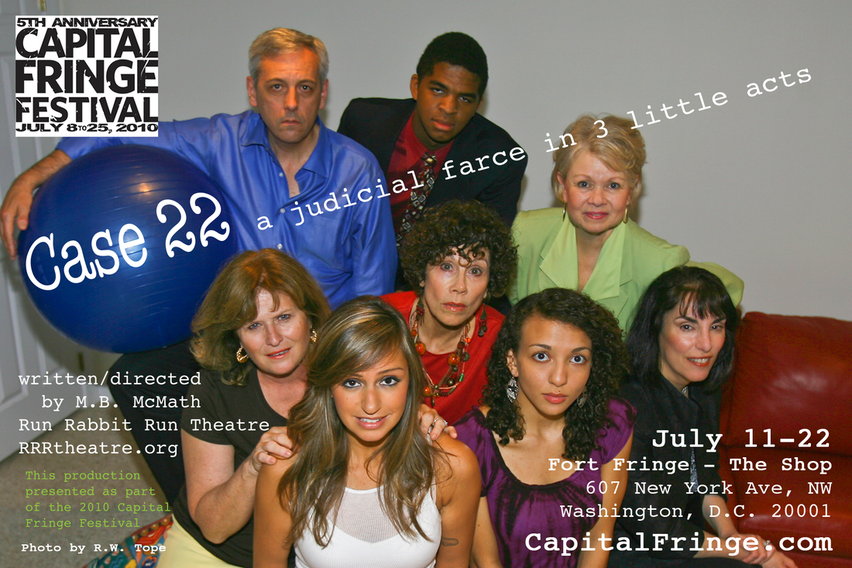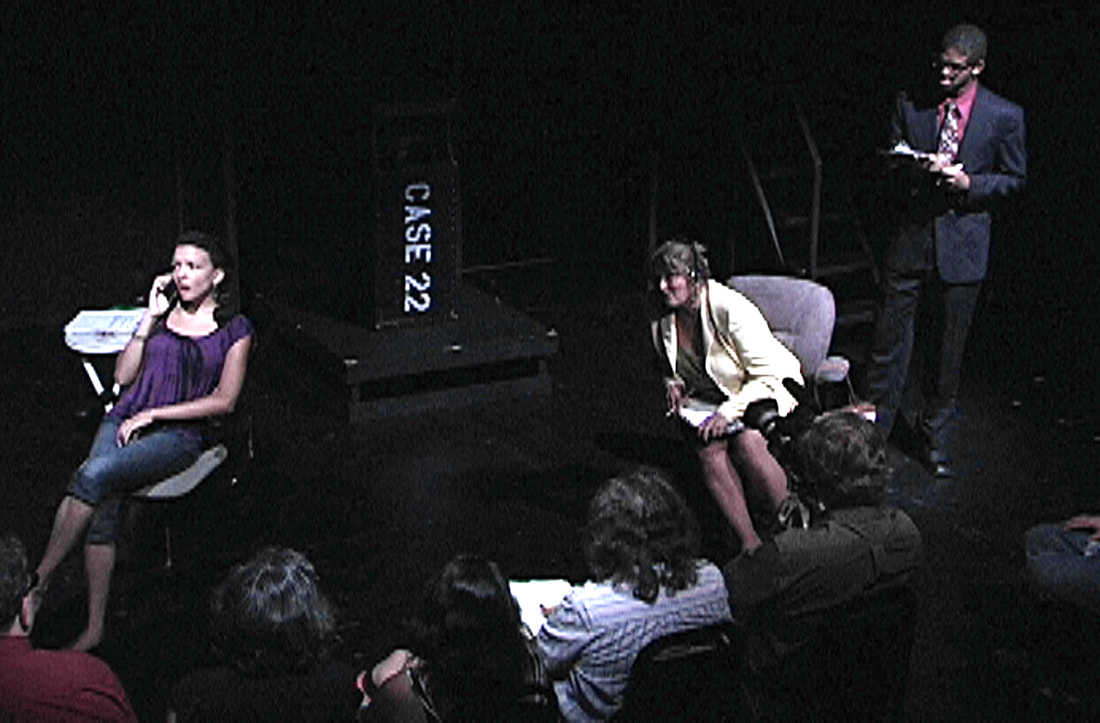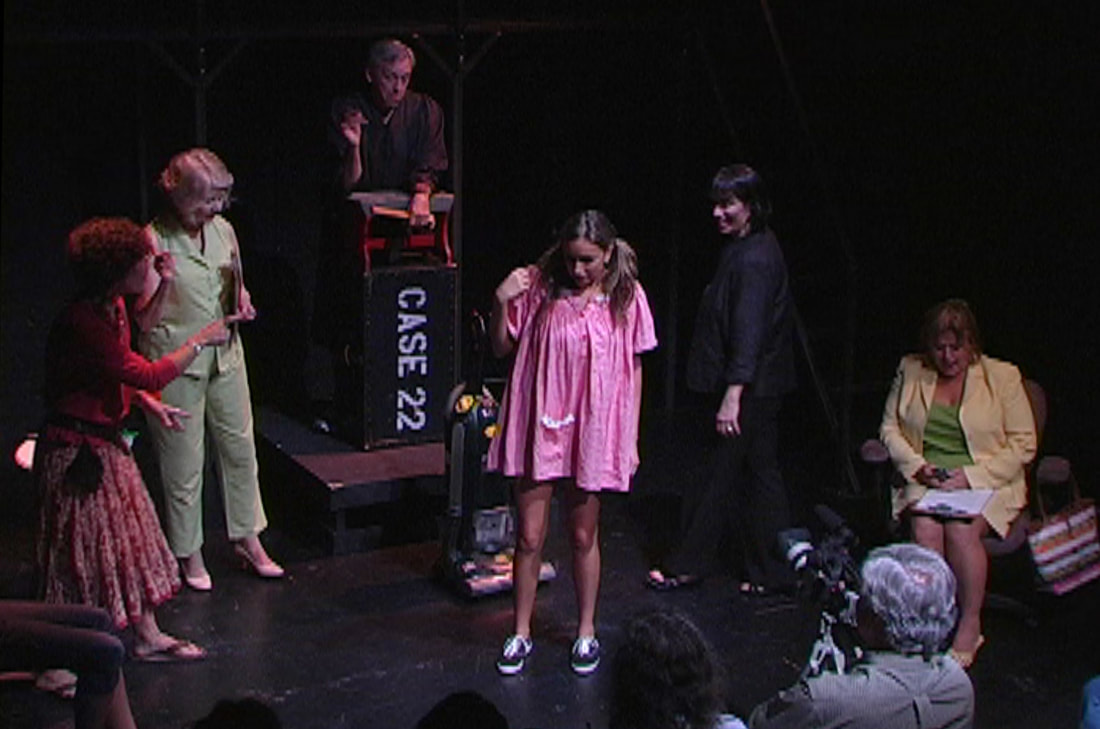|
I didn't tell anyone what I did - not even my partner in life. Just quietly filled out the application and took it to a mailbox. Stomach queasy, I shut my eyes and took a deep breath. Ka-thunk. Why did I keep it to myself? Because if you're an author and a playwright, 9 times out 10— Make that 999 times out of a thousand - you're going to send your sweet little puppy off and never see it again... or you'll get a letter back telling you how ugly your puppy is. So I was more than surprised to receive notification that my play, Case 22, made it into the 2010 Capital Fringe Festival in Washington, D.C. And in 2010, there had been an 80% increase in applications and a long waiting list, so it felt pretty good to make it. Made me feel as though I'd won something, and I guess I did: I won an opportunity to produce a play that is, as Shakespeare would say, "not for all markets." Certainly not for my local market. Case 22 is a dark farce — not the sort of fodder folks people are used to seeing around here... or seeing me produce… or seeing anyone produce, actually. So why did I write a dark comedy? Well, Playwright Martin Blank’s has said great playwrights, “ask important questions and then try to answer them”. No, I don't pretend to have the answers, but I do believe Case 22 asks an important question like this: When a sane teenager wants to leave an abusive home, why does they have to be deemed crazy before they can get any real protection? Somebody will argue (and many have) that social services is there to help those teens, so we there's no need to be concerned. Well, those people are welcome to write a play about all the happy endings out there, but they’ll have a hard time finding them. Case 22 is based on true events and represents the statistical majority. In the world of social assistance, there are 2 incontrovertible facts : 1) Physical abusers rarely stop abusing, and 2) American courts are generally geared to keep families together "at all costs." So happy endings are rare as hen's teeth. So where did I come in? Well, I’ve worked in local theatre for many years, and that world is filled with open, accepting, kind, generous, and enthusiastic people. Due to this unconditionally welcoming environment, unusual kids find safe haven here... including the children and young adults who live in abusive homes. And Case 22 came to me while I was producing a play and getting to know yet another young teenager who'd found a degree of refuge in theatre. She couldn’t contact Social Services for fear of retribution, but we asked if we could do it for her. She agreed, and in no time at all, we smacked up against the two facts above: "The abuser will never stop abusing", and “We have to keep that family together!” As a result, despite our best effort to engage the system in her protection, she got little help. Soon after this, Case 22 came to me in a torrent - words pouring out of me as characters screamed their stories in my ear. I waited for a production opportunity to present itself, and when the Fringe application deadline loomed, against all odds I went for it.
Naturally when it was accepted I became terrified — terrified it wouldn't come together as hoped, that no one would come, they'd come and not understand, or get a bad review and I'd have to deal with it — who knows what. But I was wrong on all counts, with a grand finale of an excellent review from DC Metro Theatre Arts. So, while the most worthwhile questions are the most frightening to pursue. They are definitely the most worthy to pursue. And I have a host of important questions to ask. Don't you? Ka-thunk.
0 Comments
Leave a Reply. |


